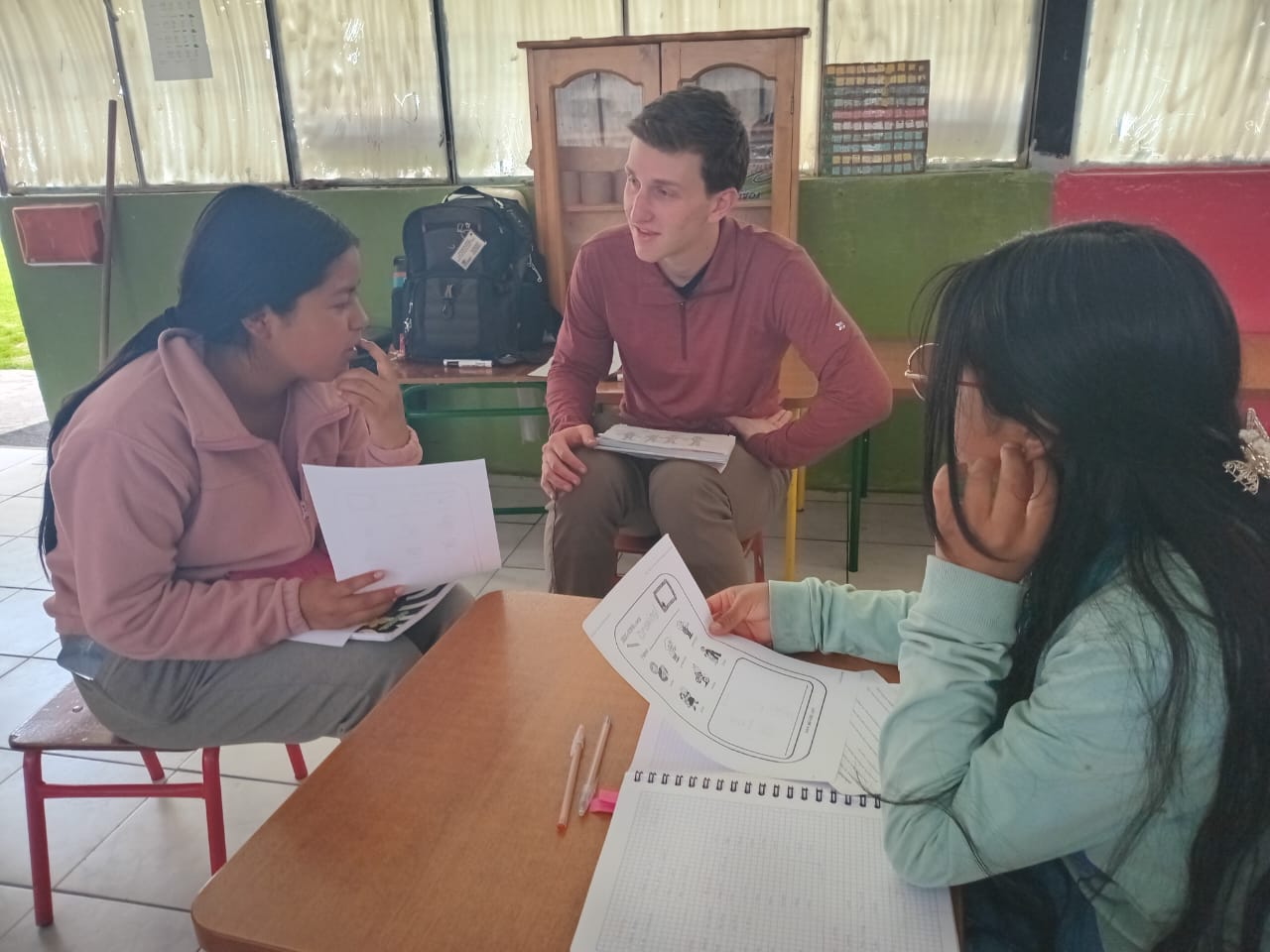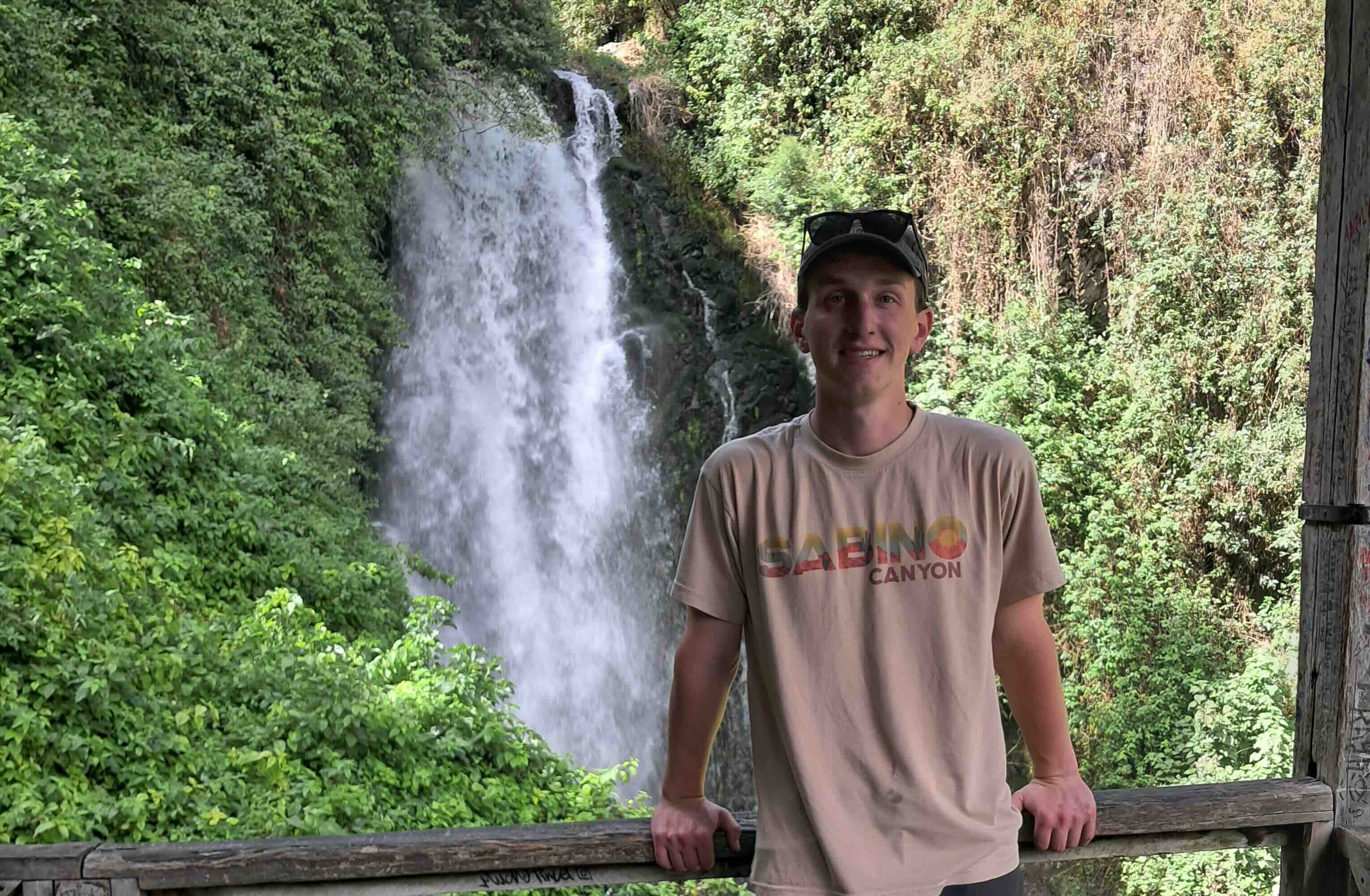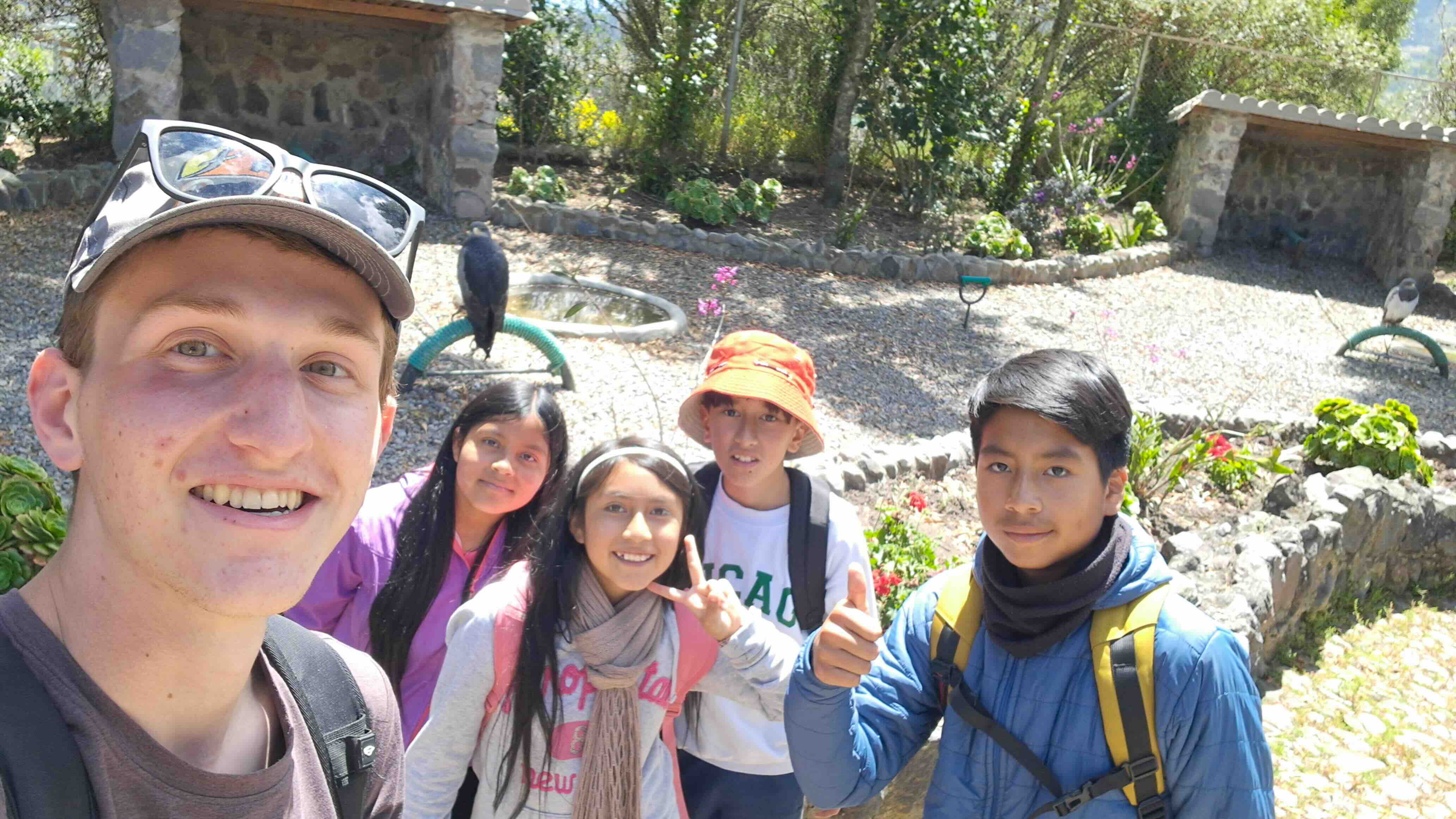
Most mornings, the streets of Quichinche are quiet. A couple shop owners are talking to regulars, a handful of people are waiting at the bus stop, and the local restaurant owner is slicing cuts of meat from the full-size pig he has stood up outside his storefront. The only sounds are the occasional street dog bark, the moos of the cows, and the catchy jingle the gas truck plays as it makes its rounds. This town sits under the watchful eye of two massive volcanoes in the Andes Mountains of Ecuador, is just a short bus ride away from the bustling city of Otavalo, and for 5 weeks this past summer, it was my home.
I had the opportunity to serve as an ESL Teaching Intern at a summer school run by a group called The Tandana Foundation. My time in Ecuador consisted of teaching English to local middle schoolers, spending time with my host family and exploring all of what the region had to offer.
I had a couple of moments in Ecuador where I stopped and wondered how I ended up halfway across the world in a foreign country, teaching in a foreign language. When I first heard about the internship from Dr. Elena Jackson Albarrán, it sounded interesting, but it was not really something I entirely saw myself doing. However, after I applied via the internship partnership set up through the Department of Global and Intercultural Studies and had a really encouraging interview, I started to grow more excited about the possibility of working with Tandana. I’m someone who is studying to be a teacher, and have been learning Spanish for years, so an opportunity to get teaching experience and practice the language was a two for one deal. I knew it would be really challenging of course, but I also knew that if I could teach in Ecuador, in a foreign language to a different culture than my own, I would have so much more confidence back in the United States. I also hoped I could make an impact by being a native speaker that these students could learn from. Being able to speak English opens a lot of doors for these kids, whether it's college or a bilingual job in tourism. While they do learn some English in school, it is very minimal and often taught by teachers who don’t even speak much English. So, knowing that I would be an invaluable resource to help these really passionate kids learn not a second but a third language, really got me excited to get to work.
Now, going into this internship, my teaching experience was quite limited. I had substitute taught at a couple of middle schools back home, but nothing could compare to this. I realized early on how difficult it is to teach in Spanish, a language that up until that point I had very limited practice with. There were a couple of lessons that were a bit shaky, and a couple of things I wish I’d have explained better, but as the courses went on I got more comfortable and really started to connect with the students.
The summer school itself was a 4 week program where students ages 11-16 from different local communities would come in for Math, English, and Theatre classes. The Math and English classes served as supplemental instruction that would help them be ahead or caught up in those classes when they returned back to school in the fall. The teachers were a combination of local teachers from Otavalo or people like me from the United States. However, the big reason for the program is that in Ecuador even though high school is technically free, there are a lot of extra costs, like uniforms, technology, and supplies, that families cannot afford. So, essentially after the kids completed the program the Tandana Foundation would give them a scholarship to cover those costs. I think that knowing that the kids were not just at the summer school because they had to be but instead that they were trying to further their education really added meaning to the work I was doing.
If you asked me my favorite part of this whole trip, I’d have to say it was the kids. They were fun, smart, welcoming, and had such an eagerness to learn. I must say that I admire them too. While a few were from Quinchinche where the school was, most lived in communities further away and had to take buses, sometimes one or two hours just to get to school. Yet still they brought a joy to the summer school that manifested everywhere from including me in recess games of tag or soccer, to asking great questions in class and teaching me words in Kichwa, the local indigenous language. These kids made me really proud too. They came into the summer school really shy, both with us teachers and with their classmates. However, when the end of summer school came and they had to perform a play in front of their parents, they absolutely killed it. I got to see kids who hardly spoke a word in the first week of classes, speaking so confidently in front of dozens of people. In reflecting back, I’m even more certain that I want to be a teacher. I love teaching, and I loved those kids.
Living with a host family was really amazing too. My family was so friendly and welcoming, and they really took care of me. They were an indigenous Kichwa speaking family of two lovely parents, three college age children, a daughter in law, and a baby that was only a few months old. They are hard workers, most of them sew clothes for a living, and there were many late nights they would spend sewing and talking. Some of my favorite memories with them were the dinners that we’d share that were full of laughs and hearty meals of potatoes, rice, and soup. One of the most unique things I got to try was cui which is guinea pig, a local specialty. In fact, my host family actually raised cui so they would let me feed them too. Over dinner they would talk about their day, tell stories, joke and tease each other too. It was really cool to see how well they got along, and I was glad to be a part of it. They also brought me along to all the things they had going on in the community. I got to go to church with them and listen to them sing songs in both Kichwa and Spanish. They took me to go help the neighbors too, whether it be making bread or tearing down an old roof. It was really special to be included and to join them in all of these things. I got to see the strength of their community and family and how close they are to their friends and neighbors.
Looking back, my time in Ecuador was something I will never forget, and I recommend anyone who is curious about learning about a new culture and language to go and step out of their comfort zone. I think it's okay to be nervous or even a little scared and I think that makes it all the more worthwhile when you get to see yourself grow. This was my first time ever traveling alone, and I think I have learned a lot about myself because of it. So, for anyone who feels the tug on their heart strings to see what this big, beautiful world has to offer, I say go for it!
As for what's next for me, it is all still up in the air. I certainly would return to Ecuador or Latin America should I get the chance because I truly did love it there. I think that this unique experience also really sets me up well for post-grad options like Peace Corps or Fulbright Scholars, which are opportunities that I’ve dreamed about for a long time. Whatever I may do in the future, Ecuador will always hold a special place in my heart. On one of the last days of my stay, I was given an empty picture frame as a thank you gift. It is now filled with photos of my host family, my students, and all the wonderful people I met in Ecuador. I know I will carry that picture frame, and those memories with me forever.
For more information about student opportunities to get involved in internship or study abroad opportunities with the Tandana Foundation through the Global and Intercultural Studies Department’s partnership, contact albarrej@miamioh.edu.


